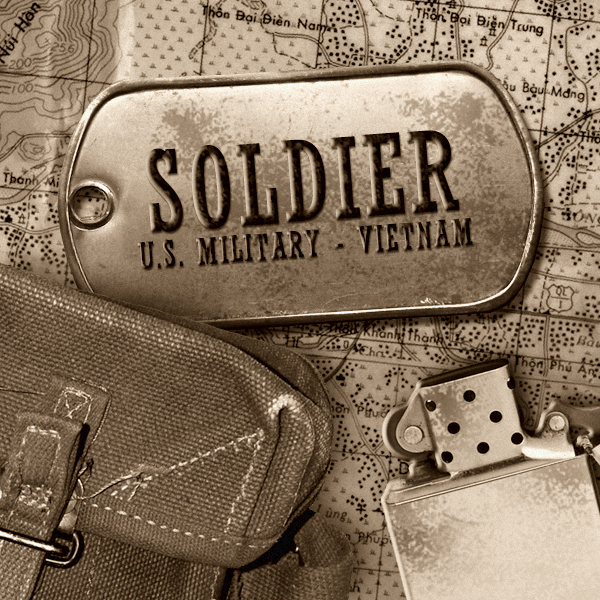
Richard Burton
Harrisburg, Pennsylvania - United States Army
Richard Burton, a second lieutenant, dreamed of becoming an infantry officer. He enrolled in the ROTC when studying in South Carolina and joined the Army in 1968.
"I went over to Vietnam as a special forces officer and when I got over there they didn’t need any more second lieutenants. They looked at my training and they saw I had a degree in psychology, and also when I was in Fort Bragg I took this correspondence course that was called psychological operations. I ended up with the Marines around Da Nang and although I was in the Army I was what they called 'attached' to them. We did psychological operations which is trying to win the hearts and minds of the locals," Burton said.
According to Burton, his job required showing the local Vietnamese the softer side of the Marines and portraying them as the "good guys" of the conflict. They would usually go on "sick call" - going to villages and helping the sick - and showing American films. Their visits would require eating Vietnamese food as a sign of respect towards their hospitality, which made Burton violently ill.
While in Vietnam, Burton’s fiancé broke off their engagement which affected him deeply. "You know any excuse would do, she just didn't want to be engaged with me or involved with me and I didn't take that news very well. So, I volunteered for some things. In hindsight I shouldn't have, but I survived. I don't have much PTSD, a little bit of survivor's guilt, but you know all of that's fading after almost 50 years," Burton said.
Burton who dreamt of being an infantry officer was assigned as a psychological operations officers upon arriving and eventually left the war with a different perspective of the government, the military, and the war. "We had a 365-day clock and we all, at least in my unit, wanted to put in our time and do what we were told to do so we could get home in one piece. Everybody's story is different and you just do what you have to do to survive and not get court marshaled. It was by the end my tour that I was not a big fan of the United States being over there. I thought it was a civil war and I went in believing everything the government told me and I came out believing nothing that the American government told me. So, it was eye opening to say the least," Burton said
Unlike other officers who served in a combat platoon, Burton did not socialize or make any friendships while in Vietnam. "That's a different situation than me just showing up at the office every day and going out with a sergeant and an interpreter. I just met some people and for lack of a better word I didn't click with anybody and didn't form any friendships," Burton said.
After leaving Vietnam, Burton worked for his father as a contractor and in welfare for the state for 30 years. "I followed the war but I didn't, I just wanted to get on with my life. There were all these stories about Vietnam veterans going postal, every time there was a story in the newspaper it was portraying Vietnam veterans in a very bad light, and plus, the public couldn’t differentiate between the veteran and the war. They thought all of the Vietnam veterans were baby killers. So, you didn’t want to tell anybody you were a veteran and it was not a nice time to be a veteran, the American Legion didn’t want you, the VFW didn’t want you, nobody wanted you," Burton said.
According to Burton, the VFW didn't consider Vietnam veterans as having fought in a war since war was never officially declared. "A lot of guys were spit on and called baby killers and it was not a nice environment for somebody who volunteered, I mean I was a volunteer. I could've made up an excuse and gone on to Canada or go on to the reserves or something but this is what I wanted to do for my country and then I found out my country lied to me."